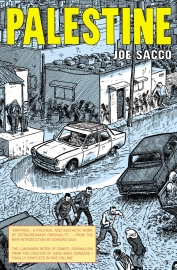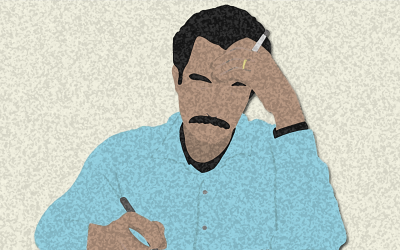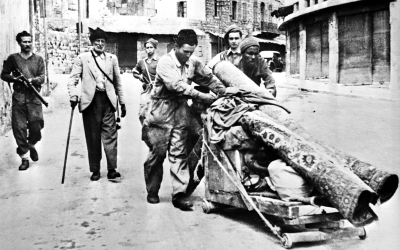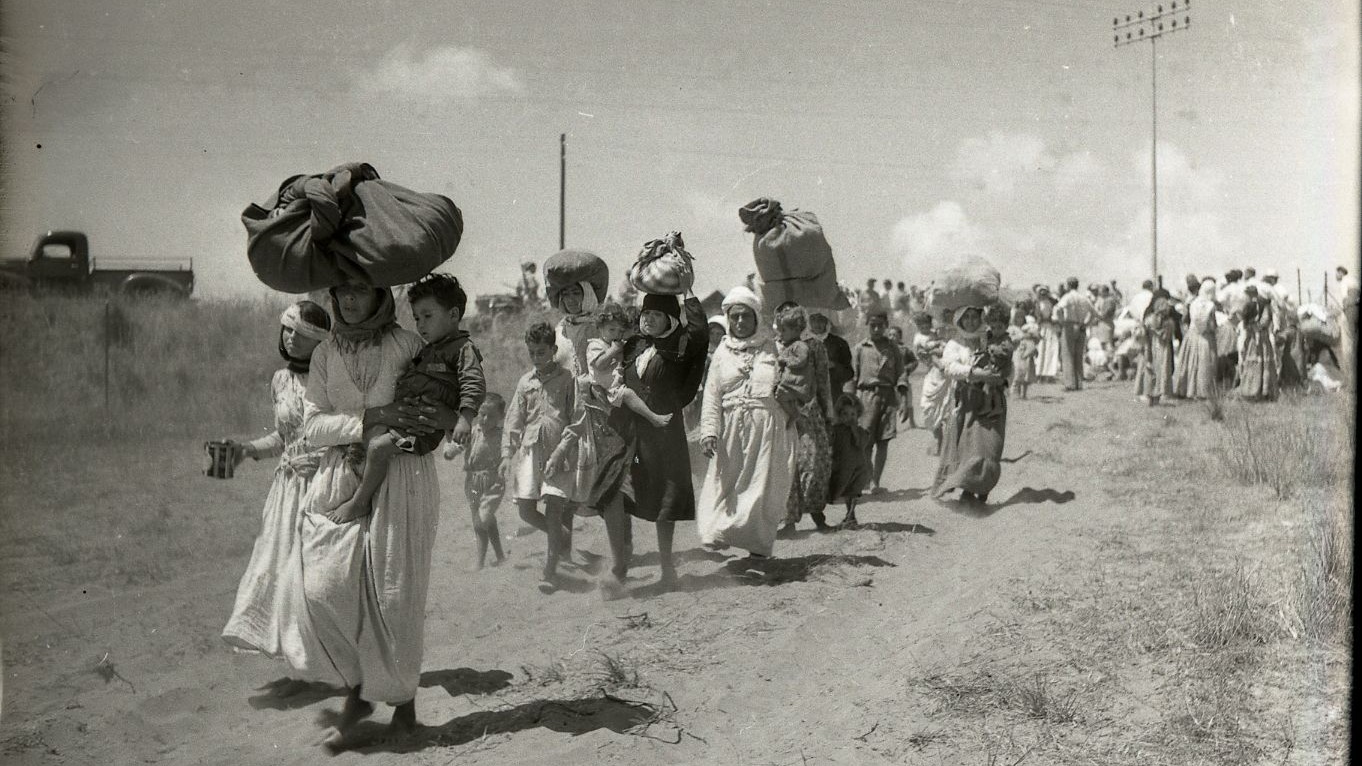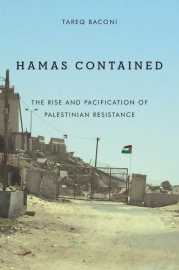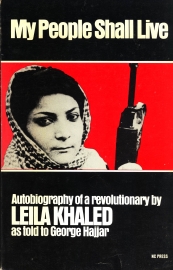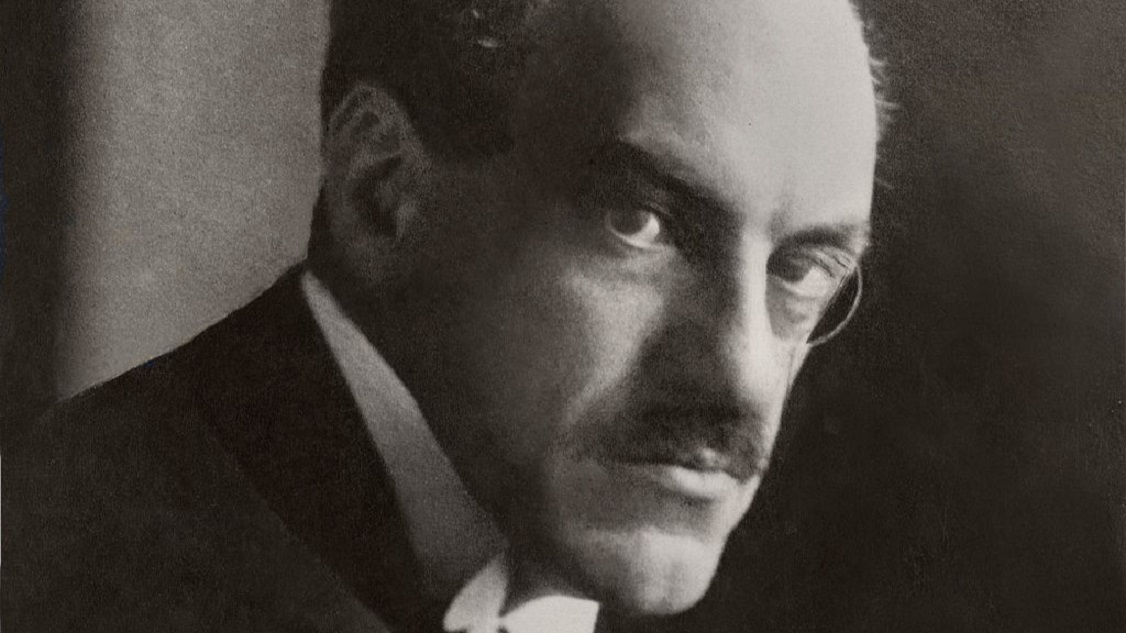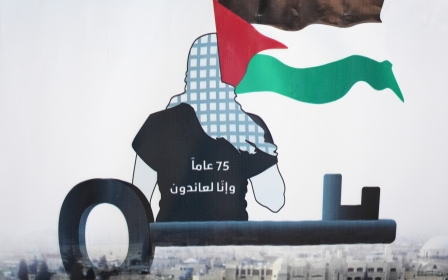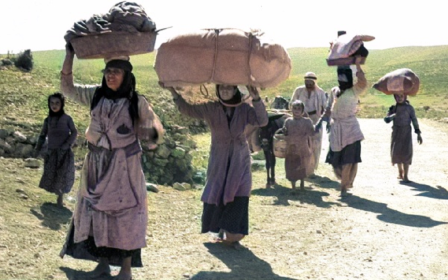Making sense of the war on Gaza: Nine reads to help you understand the Palestinian plight
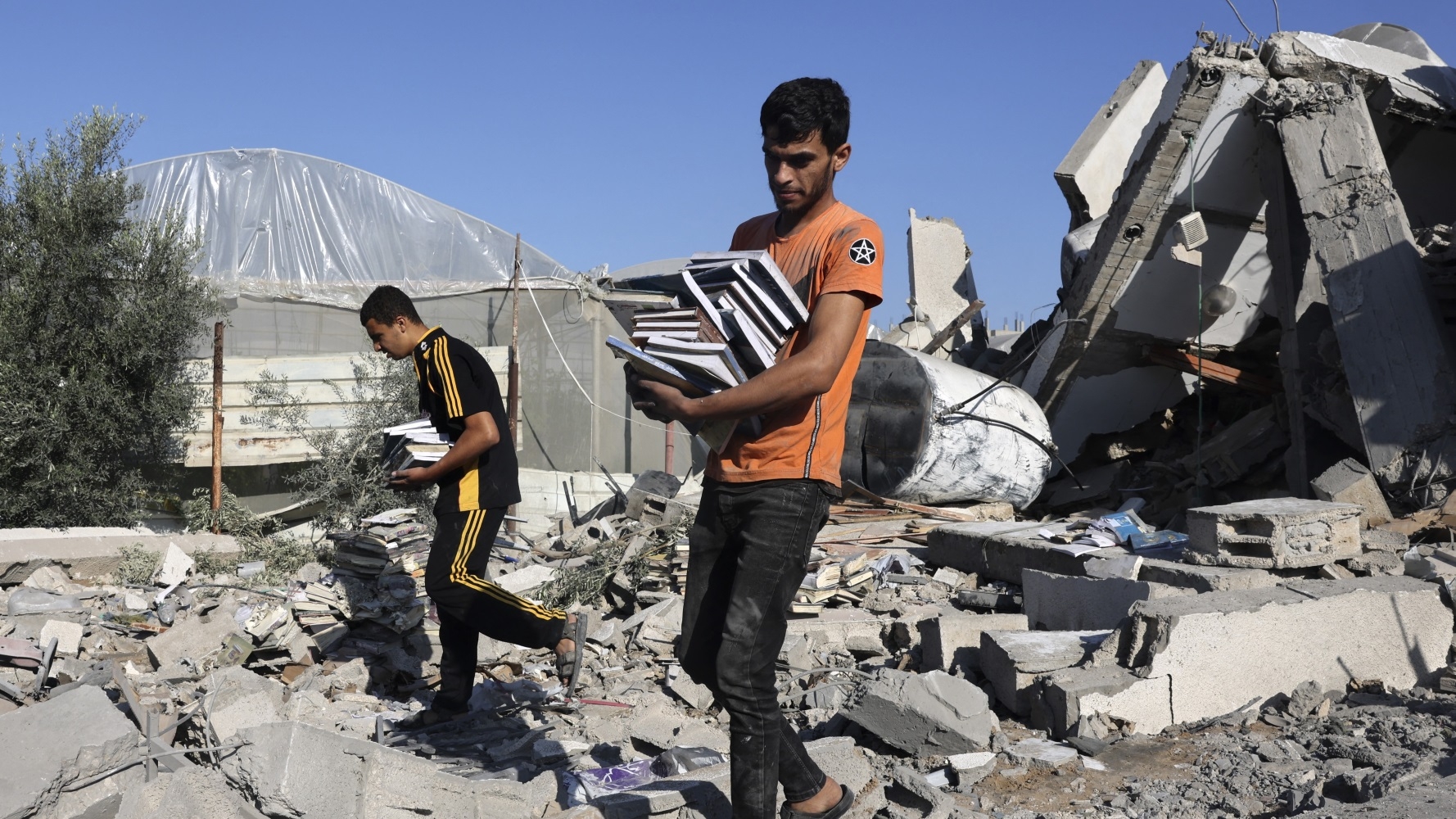
With the War on Gaza passing the 100 day mark, there has rarely been more focus on the Palestinian plight in recent history.
The conflict is one of the most devastating episodes in Palestinian history and at the time of writing, more than 23,000 Palestinians have been killed in Israeli bombardment of the besieged Gaza Strip, the overwhelming majority of them women and children.
Their deaths come as Israeli politicians and commentators call for ethnic cleansing of the territory with alarming frequency.
Even Israeli Prime Minister Benjamin Netanyahu has invoked biblical references to the destruction of Amalek during the war.
These comments may seem out of line to the casual observer but anyone familiar with the Nakba would know early Zionists made similar comments about the need to expel Palestinians before and during the 1948 establishment of the state of Israel.
New MEE newsletter: Jerusalem Dispatch
Sign up to get the latest insights and analysis on Israel-Palestine, alongside Turkey Unpacked and other MEE newsletters
The story of Palestinian dispossession and subsequent life under occupation starts decades before then and has been recorded by numerous authors and scholars in dozens of books.
Given the sheer volume of work, the task of knowing where to start reading about Palestine can be a daunting one.
To that end, Middle East Eye has curated a list of nine easy reads that will give the reader a solid understanding of the Palestinian story.
1. Palestine by Joe Sacco
Palestine is one of the best reads for a novice attempting to understand the situation in the land between the River Jordan and the Mediterranean - and not just because it is a graphic novel, a medium historically dismissed as juvenile by many.
Based on reporting by Joe Sacco from Israel-Palestine during 1991 and 1992 (the tail end of the first Intifada and before the Oslo Accords), it goes into uncompromising detail about life in the occupied territories and the daily occupation and injustices faced by Palestinians.
Sacco doesn’t shy away from the personal: although a self-professed sympathiser with the Palestinian cause, he notes that a formative moment in his understanding of the conflict was the news in 1985 of the murder of Leon Klinghoffer.
The 69-year-old disabled Jewish-American was killed by the Palestinian Liberation Front after it hijacked a cruise liner, something which Sacco says angered and discomforted him.
Throughout, Sacco presents the lives of real people - both Palestinians and Israelis - with unflinching honesty, resorting to neither polemic nor hyperbole.
Most pertinent to the current conflict are the chapters on Gaza, the birthplace of the First Intifada, and a stronghold of Palestinian resistance to occupation ever since.
Palestine by Joe Sacco is published by Penguin
2. Returning to Haifa by Ghassan Kanafani
Also called Return to Haifa depending on the translation used, Ghassan Kanafani’s novella is a touching exploration of the complexities of loss that accompanied the Nakba.
In the book, a Palestinian refugee couple returns to their home in the eponymous city to find it now inhabited by a Jewish couple, a visit made especially difficult by the memory of their infant son, who went missing during the events of 1948.
The son, it transpires, was found by the Israeli couple and raised as their own; named Dov, raised Jewish and served in the Israeli army to boot.
In denial, and consumed by anger after the revelation, Dov berates his biological parents, blaming their loss on themselves and declaring: “You should not have left an infant in its crib.”
That line transforms Dov into a stand-in for the land of Palestine itself and alludes to the guilt many Palestinians were tormented by for not having remained in their communities in the face of the Zionist advance.
In the end, Dov is left in a state of turmoil with no hint as to whether he will soften his stance towards his biological parents and allow them back into his life; a representation of the position Palestinians found themselves in when Kanafani wrote the story in 1969 and continue to find themselves in today.
Returning to Haifa is a short but impactful read and despite being an entirely fictional work, its themes have very real resonance today, as demonstrated by the recent story of an orphaned Palestinian infant being taken from Gaza to Israel by an Israeli soldier.
Returning to Haifa can be found in the collection titled Palestine's Children: Returning to Haifa and Other Stories, which is published by Lynne Rienner Publishers
3. The Ethnic Cleansing of Palestine by Ilan Pappe
In the 75 years since the Nakba, Israeli writers have offered different explanations for what happened to the Palestinians who lived within the borders of the modern state of Israel. In some versions, they left voluntarily, in others they were never there to begin with, and for others, the question is best left unaddressed.
Israeli historian and University of Exeter academic Ilan Pappe seeks to answer the question definitively in The Ethnic Cleansing of Palestine, his tour de force study of the Nakba.
The book offers an intimate insight into what motivated Zionist leaders at the time by analysing official Israeli documents, Palestinian archives, and notes made by Israeli leaders, amongst other sources.
The conclusion a casual reader can draw from Pappe’s research is that the Nakba was a systemic process, deliberately planned by Israel’s future leaders and not an ad-hoc movement of Palestinians, who during the fog of war found themselves locked out from their homes forever.
From Pappe's research, we learn that addressing a perceived demographic threat posed by an Arab majority, as well as securing as much territory from Mandate Palestine as possible, were key aims of the Zionist movement.
The book is meticulously sourced and has no shortage of quotes by Israel’s leaders spelling out in cold terms their desire to reduce the Arab population of the mandate, as summarised succinctly in the Haganah militia’s Plan Dalet: “The armed forces must be wiped out and the population expelled outside the borders of the state.”
The Ethnic Cleansing of Palestine is published by Simon & Schuster
4. The Hundred Years' War on Palestine by Rashid Khalidi
Palestinian-American historian Rashid Khalidi’s work provides a broad overview of the events leading up to the Nakba and beyond.
Khalidi recounts Herzl's early correspondence with Palestinian leaders in the late 19th century - including one of his relatives - and concludes that the Zionist project had colonialism and displacement in mind since its conception.
The book details the slow wrestling away of historic Palestine from its native population during the First World War and its aftermath, which was initially instigated by the British and subsequently involved the League of Nations and later the United Nations.
A key takeaway from the book is that we should not look at the dispossession of the Palestinians solely within the binary of Zionists versus Arabs, but rather as a multilayered process that also involved international actors.
Lucid and comprehensive, the book is an essential account of the Palestinian story.
The Hundred Years' War on Palestine is published by Metropolitan Books
5. Minor Detail by Adania Shibli
The two equally relentless stories in this short, tightly paced novel take place side-by-side: one is based on a true story of an Israeli platoon that gang-raped a Bedouin girl in the Negev in 1949; the other follows a Palestinian woman who tries to investigate the crime decades later in her own awkward, insistent way.
Their stories are connected by a fateful “minor detail”, and the two tragedies collide across time at the end of the novel.
Minor Detail, which was published in Arabic in 2017, is Shibli’s third novel, and her third translated into English.
Her work has won numerous prizes. Back in 2009, she was named one of the "Beirut39" - the top 39 Arab writers under 40 as rated by Banipal magazine.
As a review in Publishers Weekly notes, the unexpected momentum of her prose "cries for rereading."
Elisabeth Jaquette's English translation of Shibli’s latest novel was shortlisted for the National Book Award in the US and longlisted for the 2021 International Booker in the UK.
Minor Detail is published by Fitzcarraldo
6. Gaza Writes Back, edited by Refaat Alareer
Notable for containing stories from 15 young Palestinians living in Gaza and the tragic fate of its editor, Refaat Alareer, Gaza Writes Back was produced against a backdrop of near-continuous siege and conflict.
Alareer was killed in an Israeli air strike on Gaza but had established himself as one of the besieged region's most prominent activists and academics.
Through his work with We Are Not Numbers, the scholar of English Literature at the Islamic University of Gaza helped nurture and mentor a generation of young writers and journalists in Gaza.
In this, the work he is best known for, the stories focus on the central role war plays in the Palestinian experience.
In her endorsement of the book, novelist Susan Abulhawa describes the Gaza Writes Back collection as a "testament to the resilience, moral fortitude, and beauty of oppressed and violated people everywhere".
"The writers are barely in their twenties and though their lives echo of bombs, bullets, and Israel's intentional programs to dismantle them, their stories teach us what it means to have an unconquered spirit and unbroken will," she says, adding: "These are the next generation of Palestinian writers and intellectuals."
Gaza Writes Back is published by Just World Books
7. Hamas Contained by Tareq Baconi
Since the ongoing conflict started on 7 October, the Israeli government has sought to depict Hamas as a movement motivated by millenarian fantasies, similar in outlook to groups like Islamic State.
Tareq Baconi’s groundbreaking history serves as a remedy to that depiction, which for what it is worth, is widely ridiculed by serious analysts of the conflict.
Based on interviews with leaders and the group’s own writings, the book provides an informed and critical take on the movement and a deeper understanding of what has motivated it over the past 30 years.
Most people learning about Gaza from the mainstream media, Baconi argues, will see it either as a strip of land that has been destroyed causing unprecedented humanitarian suffering, or a haven run by an unruly organisation that has taken its people hostage in order to run a campaign of terror against Israel.
Both views are reductionist and unhelpful in understanding either the movement or why two million Palestinians are crammed into a land mass the size of Philadelphia today.
Hamas Contained is published by Stanford University Press
8. My People Shall Live: The Autobiography of a Revolutionary by Leila Khaled
Leila Khaled's autobiography was published when she was only 29, which is an unusually young age for someone documenting their life’s achievements.
But by then Khaled, who gained notoriety as a plane hijacker and icon of Palestinian resistance, had already experienced more than most people manage during a lifetime.
Published in 1973, My People Shall Live details Khaled’s early years with her family as they fled the catastrophe that engulfed the Palestinians after the creation of Israel.
She then lived as a refugee in Lebanon and Kuwait, joined the left-wing Arab Nationalist Movement in Beirut at 15, and later became part of the Marxist-Leninist Popular Front for the Liberation of Palestinians (PFLP).
Some of the strongest moments are the interaction between her life and that of her family, such as her mother’s disbelief when she is jailed for a hijacking: "I know my daughter... she’s not like they are saying, all this beauty!"
More than anything, My People Shall Live depicts the events, tragedies, and injustices that create a "terrorist" in the eyes of the Israeli government and its allies.
My People Shall Live by Leila Khaled was published by NC Press in 1973
9. The Legacy of Empire by Gardner Thompson
A thoroughly researched and intriguing look at the British role in the lead-up to the establishment of Israel, Gardner Thompson’s work is an essential read for anyone looking to understand how the Nakba came about.
Starting with the early streams of Zionism, Thompson identifies the movement set up by Herzl as a fringe movement with a few influential followers.
Luckily for the Zionists, those few included figures like Chaim Weizmann, a chemist and Russian Jewish emigre who earned the admiration of many in Britain’s elite for his role in developing cordite explosives during the First World War.
The aims of such Zionist leaders dovetailed with both antisemites and philosemites within the British establishment.
The former was driven by what Thompson describes as "nimby-ism" (from "not in my back yard"), an approach that preferred that Jews, many of whom had arrived in Britain from eastern Europe, simply moved somewhere else.
The latter group, who were antisemites, were driven by a mixture of Christian fundamentalism and bigotry towards the Muslim other.
For many Jews in Britain and Europe, the idea of a separate Jewish homeland, far away from where they lived, strengthened the idea that Jews were not native to their countries and that their loyalties lay elsewhere.
Chief amongst the opposition was the sole Jewish member of the British cabinet, Edwin Montagu, whose eloquent pleas to not concede to Zionist demands fell on deaf ears.
What followed was the Balfour Declaration, and a three-decade-long tragic comedy of errors, in which Britain tried to balance its commitment to the Zionists while placating the Arab population of the mandate.
The Legacy of Empire: Britain, Zionism and the Creation of Israel is published by Saqi
Middle East Eye delivers independent and unrivalled coverage and analysis of the Middle East, North Africa and beyond. To learn more about republishing this content and the associated fees, please fill out this form. More about MEE can be found here.


